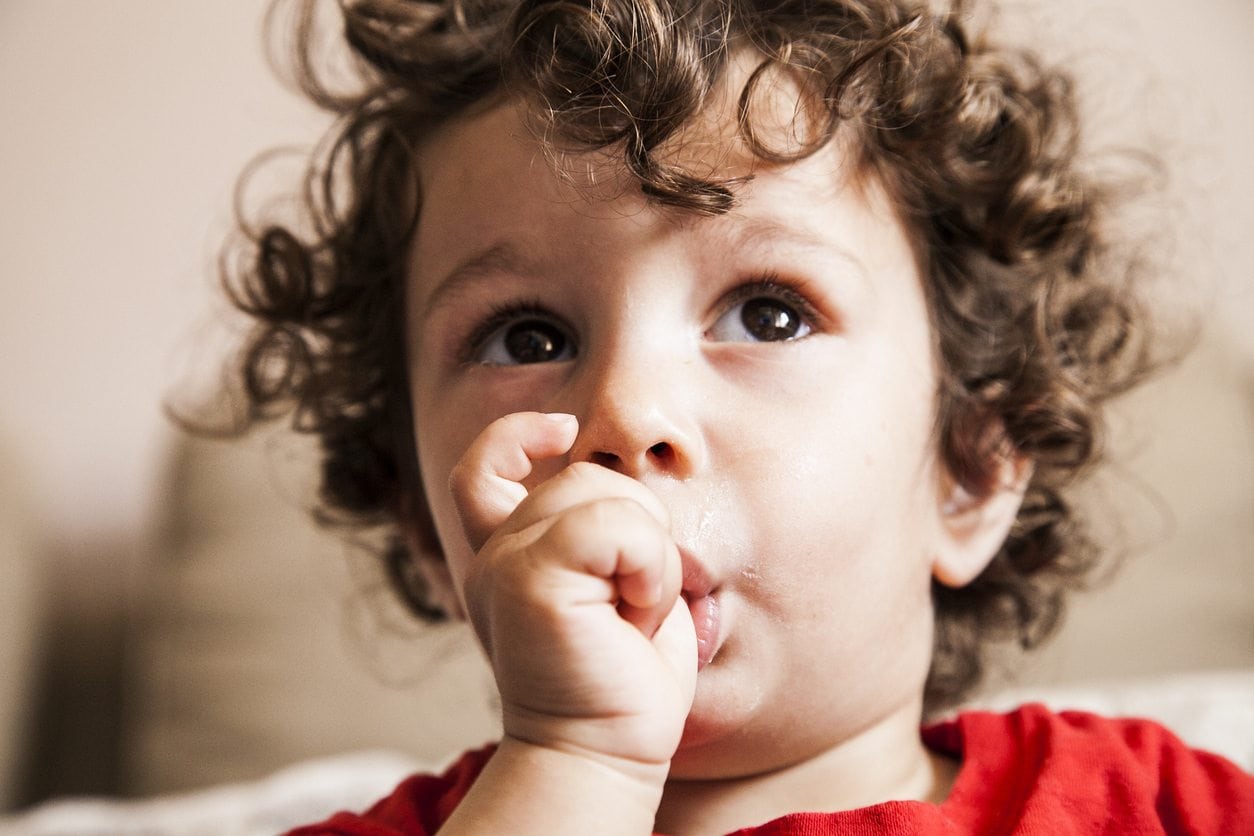Thumb-sucking is a common habit in childhood. Parents usually notice it within the first three months of the child’s life, although there is some evidence that babies can start sucking their thumbs inside the womb.
Thumb sucking is one of the things that parents worry about as babies grow and become toddlers. They wonder when the habit would wear off or if they need help to stop it. Here is some important information you should know about his habit.
Why Do Babies Suck Their Thumbs?
Infants are born with a need to suck. It is a natural reflex that gives babies the comfort associated with nursing. Infants and toddlers use it as a coping mechanism when they are anxious or separated from their parents. The habit helps to induce sleep, and children may suck their thumbs before bedtime. The sucking reflex enables the brain to release opiate-like substances called beta-endorphins, producing either a euphoric or calming effect. An actual change in body chemistry takes place when a child sucks his thumb, experts say.1
Toddlers tend to suck when they are trying to fall asleep, or when they are bored, or when they’re idling between activities, or to self-soothe when they are upset. Thumb sucking may be secondary to changes in the child’s emotional environment as well.
When Is It Time To Quit?
Usually, kids kick the habit as they get busy learning new skills and no longer need the comfort of sucking.
Thumb sucking does not have any lasting effects until after the baby teeth have fallen out and the permanent teeth are coming in. Beyond 5-6 years of age, the risks associated with thumb sucking outweigh the benefits.
According to the American Dental Association, the best time to discourage thumb-sucking is before the child turns five.2 The obvious concerns are changes that can alter the bite, oral development, and the growth trajectory of the face.
Should I Be Worried?
Thumb sucking may get worrisome if it starts interfering with the child’s functioning physically, emotionally, or socially. If the habit continues beyond the age of five or six, it may lead to the following changes:
- The pressure created by the sucking motion can affect the growth of the palate.
- Prolonged thumb sucking can affect the alignment of the teeth. The upper front teeth slant outwards, and the lower front teeth tilt behind, not allowing the teeth to overlap as the jaws come together. The open space between the upper and lower teeth is called “open bite.”
- The child may develop a lisp or have difficulty pronouncing his Ts and Ds.
- Thumb suckers are prone to skin infections such as impetigo — a highly contagious, bacterial infection that causes sores and blisters, and paronychia of the thumb — a bacterial or fungal infection that occurs around the nails.
- The intensity of sucking matters too. Children who passively rest their thumbs in their mouth are less likely to have problems than their forceful sucking peers. Vigorous sucking is identified by popping sounds heard when the child sucks. It is harder to break and usually needs intervention.
How Do I Break The Habit?
- For most children, the activity helps escape hunger and boredom. If you can feed them at the right time and keep them gainfully engaged, chances are you can get rid of the habit soon.
- Children resort to digit-sucking to relieve stress. Pick a time when neither of you is experiencing stress or change.
- Pay attention to the cues when your child sucks his thumb, and help him find an alternative. Give him some modeling clay, or a squeeze ball, or something to draw. It’s more likely to be successful than the negative approaches like bandages and bitter-tasting stuff.
- Reinforce your child’s efforts at quitting the habit with encouragement and praise. Let him know that you are pleased with the progress.
- A child’s view of time is — the present. He is dominated by how things look, or taste, or feel, or sound now. There’s no point telling him that his teeth will look better in the future if he stops sucking his thumb today.
- Avoid power struggles or criticism. It would only make him uneasy and more likely to suck his thumb.
- If you notice that your child is having a hard time giving up the habit, talk to your health professional. Do not hesitate to bring it up to your doctor, even if not asked directly.
Social situations and peer pressure usually help children to figure out when thumb-sucking is no longer acceptable. As each child is different, make sure that you pay attention to your child’s cues when he is ready to walk away from the habit. Just remember, no matter how dire the situation may seem, every child outgrows the habit eventually, and yours will too!




























